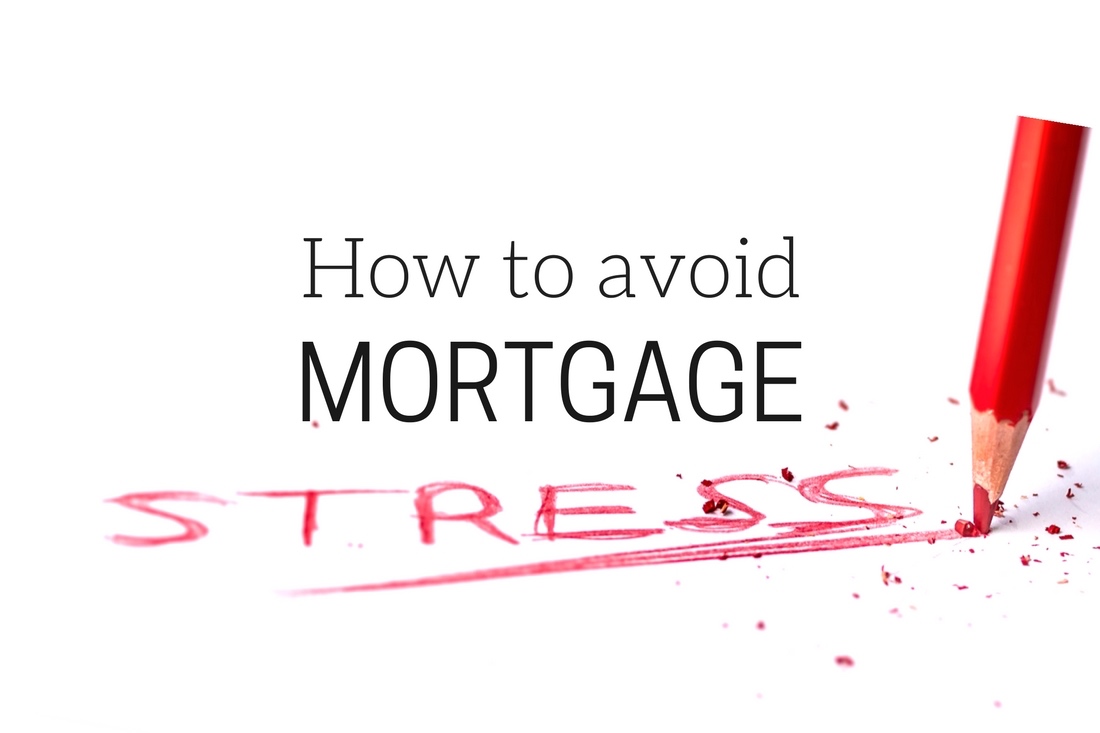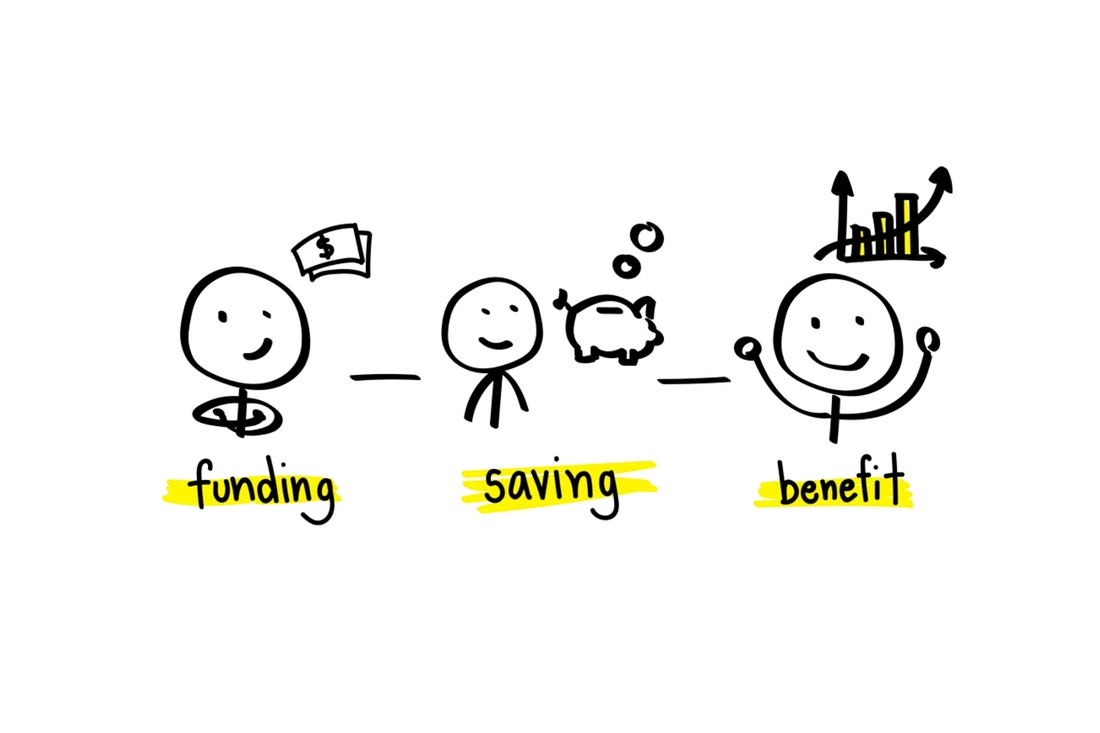![Mortgage stress: What it is, and how to avoid it]()
7 Sep 2018 | Family & Friends, Home Loans, Personal Finance

You might be comfortable paying off your mortgage now, but what if things change? Here are some tips on how to avoid a mortgage stress fracture.
Paying off a mortgage is one of the biggest financial challenges you and your family will ever tackle.
And it isn’t easy – mortgage repayments take up about one-quarter of a family’s income on average, according to the Australian Bureau of Statistics’ 2016 Census.
While most families manage, what happens if your circumstances change?
An unexpected redundancy, relationship breakdown, illness or accident can dramatically impact your ability to make your payments and put you in mortgage stress.
But first, what is mortgage stress?
While there isn’t a technical definition for the term, mortgage stress is generally considered to occur when a person or family is spending 30% or more of their income on home loan repayments.
There are also a range of other criteria which would suggest you’re experience mortgage stress.
If you’re paying only the interest on your home loan, borrowing money from family, or having difficulty paying your bills, then you might be experiencing mortgage stress.
I don’t have a problem now, why worry?
It’s unwise to assume your circumstances will never change. An accident or illness can befall a person at any time, and the impact on your finances can be devastating.
An increase in interest rates can also have a significant impact on your mortgage repayments. A simple 0.25% rate hike can increase repayments on the average Australian loan ($375,000) by about $50 a month.
Over the course of a year – and with a potential of further rate hikes – this can really chew into your disposable income.
Ok, so how can I avoid it?
The smart borrower won’t wait for their circumstances to change, they’ll start planning now to make sure they can weather a storm if it hits.
Steps you can take to reduce your risk include:
Step 1: Use a mortgage calculator to see what your repayments would will look like if there was a rate increase. Would you be able to keep up?
Step 2: Review your current income and expenses, and make a new family budget. Use it to track where your money is going and where savings can be made, so you can either pay off your mortgage sooner or get by if things go awry.
Step 3: If you’re worried about your mortgage, or concerned about the impact of a future rate hike, give us a call.
We can talk to you about your situation and help you make a plan to ensure a small problem doesn’t become a big one.

24 Aug 2018 | Business Finance, Personal Finance
Seen an offer along the lines of: ‘Drive away, 0% finance to pay’? Well, like most things in life, when it sounds too good to be true, it probably is.
Finance offers like 0% (or other low interest rates) for new cars exist for a reason: the seller wants you to put the pedal to the metal when it comes to making the purchase.
The truth is, however, that they can actually end up costing you more overall compared to getting your own finance through a broker.
But first: what is a 0% finance deal?
So, you’ve most likely taken out a loan from a bank, or used a credit card before, right?
Well, when you do so, you agree to pay that money back, plus any interest that’s accrued over the course of the loan.
But for 0% loans, you pay no interest.
That’s because instead of paying back a bank or a lender, you’ll likely be paying back the actual automaker.
So how do they make money?
Well, besides the fact they’re selling you a car, they routinely sell the car to you at a higher price than you’d be able to purchase it upfront for.
For example, a car that has a price tag of $24,990 with a 0% finance deal might sound great, but the automaker would most likely be willing to sell it to you upfront for $19,990.
There may also be hidden charges and establishment fees that you might not find out about until it’s time to pay them.
And in many cases you might need a very good credit rating, or a very large deposit, to secure the deal in the first place.
So how can I get a better deal?
The role of a broker is not only to get you a great loan with a very low rate, but to negotiate on your behalf to ensure you pay the best possible price for the vehicle.
Let’s do a little comparison. Say you take out a $20,000 loan with the help of a broker for that $19,990 vehicle mentioned above.
With the right finance, over five years you can pay anywhere between $23,000 and $24,000. That’s going to leave you more than $1,000 better off than it would have if you opted for the 0% finance option.
Another bonus is that by going through a broker, you’ll be made aware of all the relevant fees and charges that may be hidden in the fine print. This means there’ll be no extra costs sneaking up on you.
Final word
If you’re keen to put yourself in the driver’s seat when it comes to purchasing a new vehicle, give us a call.
We’ll make sure that when you drive-away, you’ll know exactly how much you need to pay. Not to mention just how much you saved in the process.
![Mortgage stress: What it is, and how to avoid it]()
10 Aug 2018 | Home Loans

In a perfect world you select a property to buy, complete with white picket fence, and the settlement goes through on the agreed date without a hitch. But as we all know, we don’t live in a perfect world.
When you buy or sell a property you go through a ‘settlement period’, which is the time designated for the buyer to complete payment of the contract before becoming the owner of the home.
Up until the settlement goes through the home is the property of the existing owner.
And with a large home deposit at stake, you’ll want to ensure you choose the right period length.
How much time should I give myself?
Generally, settlement periods fall in the range of 30 to 90 days.
In QLD a 4-6 week settlement period is the most common, but in most other places around the country it’s 60 days.
Just because it’s common, however, doesn’t mean it’s the best fit for your situation (or the seller’s).
You see, both the buyer and the seller must agree on the settlement period.
However, you may have competing motivations, so this can be tricky.
Whatever the case, just make sure you allow yourself enough time for conveyancing, bank financing approval, organising the move, undertaking requested repairs for the buyer, and negotiating settlements for your other property interests.
Also, keep in mind that if you buy the property at an auction, there will already be a settlement date indicated in the contract.
If you can’t meet that date, chat to the selling agent before signing on the dotted line to see if another date is agreeable.
You might push for a longer settlement period if:
– If you’re the seller and you’re still looking for a property to purchase
– If you’re a buyer and you haven’t yet sold your own home
– You’re selling and the buyer has requested you repair something
– If you have an upcoming event that you want deal with first (wedding, big overseas trip, etc)
– Someone is going guarantor on the loan or you’re purchasing through a family trust
– You’re buying off the plan, as the scheme has to be registered with the titles office
– You need to save more money as a buffer (especially if you’re upgrading or will be renovating).
You might push for a shorter settlement period when:
– You’re a seller who has already found another home
– You’re a buyer who has already sold your current home and needs to move quickly
– A holiday period or big event is coming up and you’re keen to move in beforehand
– You’d like to undertake work on the property sooner rather than later
– You need cash flow.
It’s important to get right
One-in-five property settlements in Australia are delayed by about one week so it’s important to give yourself a comfortable buffer.
While each party can request a settlement extension if a delay occurs, that doesn’t mean the other party has to agree.
This is where it gets a little tricky. Each state and territory has different laws, and every contract differs.
Queensland’s laws are probably the most stringent. For example, either the buyer or the seller can terminate the contract, sue for damages, and keep/lose their deposit if the other party is not ready to buy on time.
Other states have a little bit more leeway.
In NSW and Tasmania an extra 14 days can be given, in WA and SA buyers are given three days’ grace before penalty interest applies, and in Victoria a seller can immediately start charging a tardy buyer penalty interest.
Final word
So that’s negotiating a settlement period in a nutshell.
The best news? That’s about as much negotiating as you’ll need to do. Because when it comes to negotiating a loan with a lender, we’ve got you covered.
If you’d like to find out more about our services, get in touch, we’d love to help you out.
![Mortgage stress: What it is, and how to avoid it]()
27 Jul 2018 | First Home Buyers, Home Loans, Personal Finance

So you’ve decided to finally take the plunge and start saving for a deposit to buy your first home? Here’s a few handy tips to get you started.
Saved for a holiday before? Or a car? What about TV or computer?
The good news is that saving for a house deposit isn’t too dissimilar. It’s just on a much grander scale.
However by following the tips below you can achieve that goal in a year or two.
Step one: Create a budget
Your very first step is to work out exactly how much you can put away in a savings account each month. And to do this, you need to create a monthly budget.
First, calculate your income: Look at your pay slips or your bank statements to see how much is going into your account on an average month.
Second, work out your expenses: Check your bank statements, bills and receipts to calculate how much you’re spending on things like rent, groceries, transport, medical expenses, utilities and clothing. Include payments you make once or twice a year, like car registration, and work out the monthly cost.
Third, set up your budget: Once you know your income and expenses hop online and use our free budget planner to crunch the numbers.
Four, review, cut back and save money: A daily take-away coffee costs $120 a month. So too does about fifteen drinks at a bar over the course of a month. Eating out at a restaurant, or takeaway food, is also much more expensive than cooking at home. Regardless of your vices, the best way to stop any wasted spending is to track your money over a month or two and identify where the leaks are.
Step two: Work out how much you’ll need to save
While most of us dream of living in that $1 million home nestled in an inner-city leafy suburb, set your eyes on something a little more realistic.
Remember, you have to save a deposit of about 10-20% of the property’s value,.
If it’s your first home you’ll most likely aim to save something in the ballpark of $200,000 to $500,000.
That means you’ll be looking to save anywhere between $25,000 to $100,000.
Step three: Set timelines, track your progress
Once you’ve determined a figure you want to save, you now need to create a roadmap to get there.
The first few months will be the toughest, so set realistic expectations to begin with and increase as time goes on. Rest assured however that as you see your savings increase, you’ll be more and more motivated to cut back on your expenses.
For example, aiming to save $1,000 for your first month, and then finding an additional $100 in savings each month means you’ll have saved more than $20,000 (incl. interest) over the course of a year.
Even better news, in 18 months’ time you can have enough for your home deposit if you start saving now.
Sticking to these goals may mean you need to opt for a local holiday camping at a nearby national park instead of jet-setting overseas.
But remember, short term pain for long term gain.
Step four: Look into savings accounts and schemes
Once you’ve started saving you’ll want to make sure you’re not tempted to spend it. Look into a savings account with a good interest rate or a term deposit.
Whatever you choose, make sure it’s difficult to access so you don’t get tempted to spend it.
You might also be eligible for the federal government’s First Home Super Saver (FHSS) scheme, which allows you to save money for a first home inside your superannuation fund.
This, in turn, allows you to save faster due to the concessional tax treatment that super offers.
To be honest, however, this step is very much dependent on your individual situation, so if you want more in-depth tailored advice in this area, give us a call for a chat. We’re more than happy to discuss all your options.
![Mortgage stress: What it is, and how to avoid it]()
13 Jul 2018 | Home Loans, Personal Finance

You know how it goes. You see that dream property you’ve just got to have, and then next minute, the budget is in smithereens. Well, at least that’s what happens to almost a quarter of home buyers. Here’s how to keep a lid on your emotions and your budget.
Purchasing property is perhaps the most emotional transaction you’ll ever make.
Come crunch time you’re there imagining your kids mucking around in the background while you’re turning snags on the back deck with friends over a few drinks.
Hardly a time to be making the biggest purchase of your life, as many people seem to discover.
A quick look at the stats
In fact, for a whopping 22% of home buyers, the emotions run way too hot and they end up well exceeding their spending limit, according to a new survey by ME bank, which is owned by 29 industry super funds.
Of the people who go over budget:
– Almost half exceed it by $30,000 or more.
– Three in ten exceeded their budget by $50,000 or more.
– One in ten exceed their budget by $150,000 or more.
Some of the more common reasons for exceeding the limit include falling in love with the property (52%), impatience (20%), and getting caught up in a bidding war (12%).
Kerb your enthusiasm
Rest assured that even if you purchase a property at the upper end of your budget, we’ll help you secure a great home loan that will make your repayments more manageable.
In the meantime, however, here are some tips to keep in mind when you’re on the hunt for your dream home:
– Patience is key. Even if you do miss out on what you consider to be your dream home, another one will come along. And it might even be better.
– Keep your emotions neutral. Before acting hastily, always call someone who can be an objective voice of reason.
– Compromise with yourself. If everything you like seems to be just outside your budget, compromise a little on something. That could be the location, the size of the property, or even its style.
We’ve got your back
Now, sure, our primary role is to find you a top notch home loan.
But we pride ourselves on also being a friendly ear with your best interests at heart.
So if in the heat of the moment you ever need to speak to someone who can help put your emotions to the side for a second, then don’t hesitate to call.
We’d be more than happy to provide you with experienced, fair-minded home loan advice.





